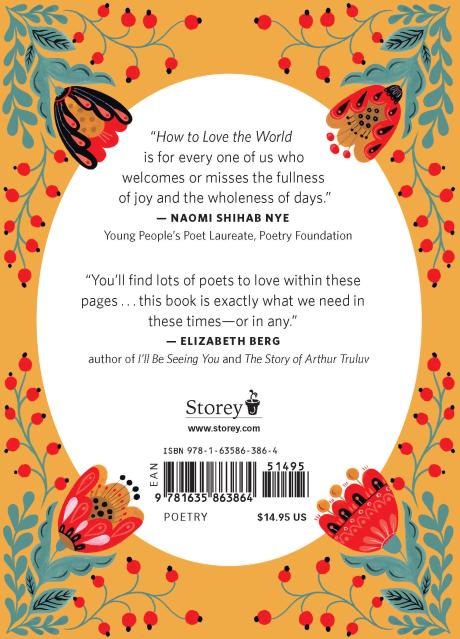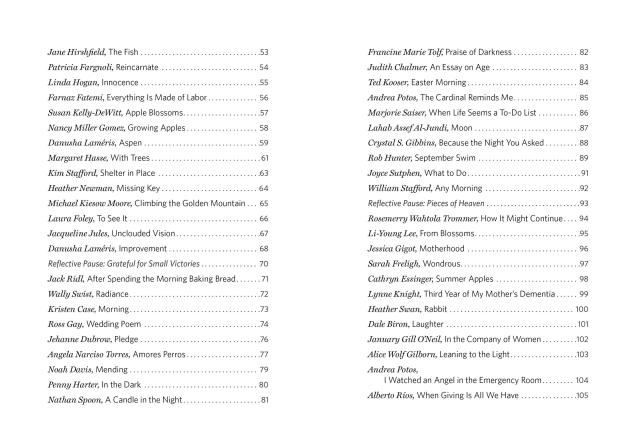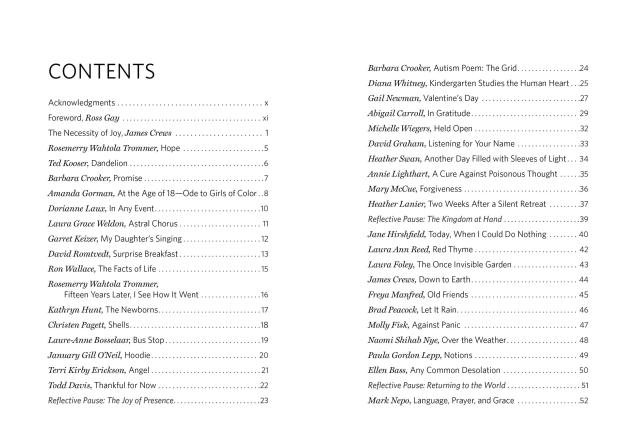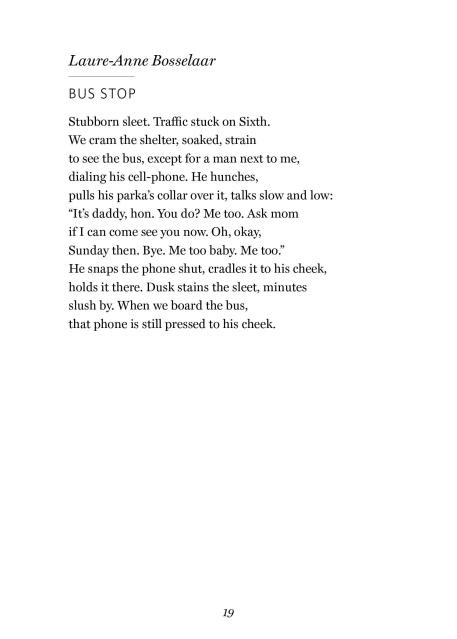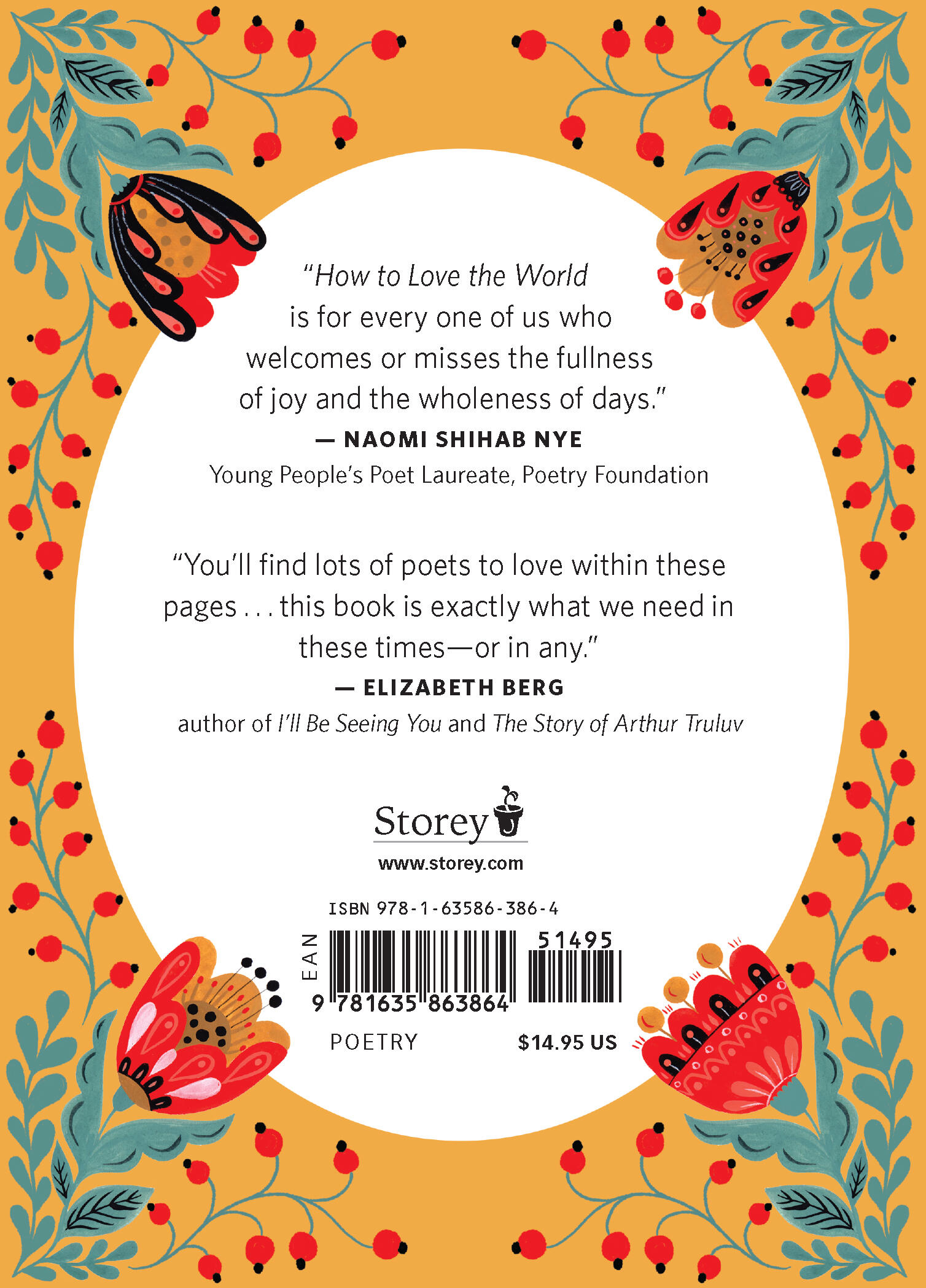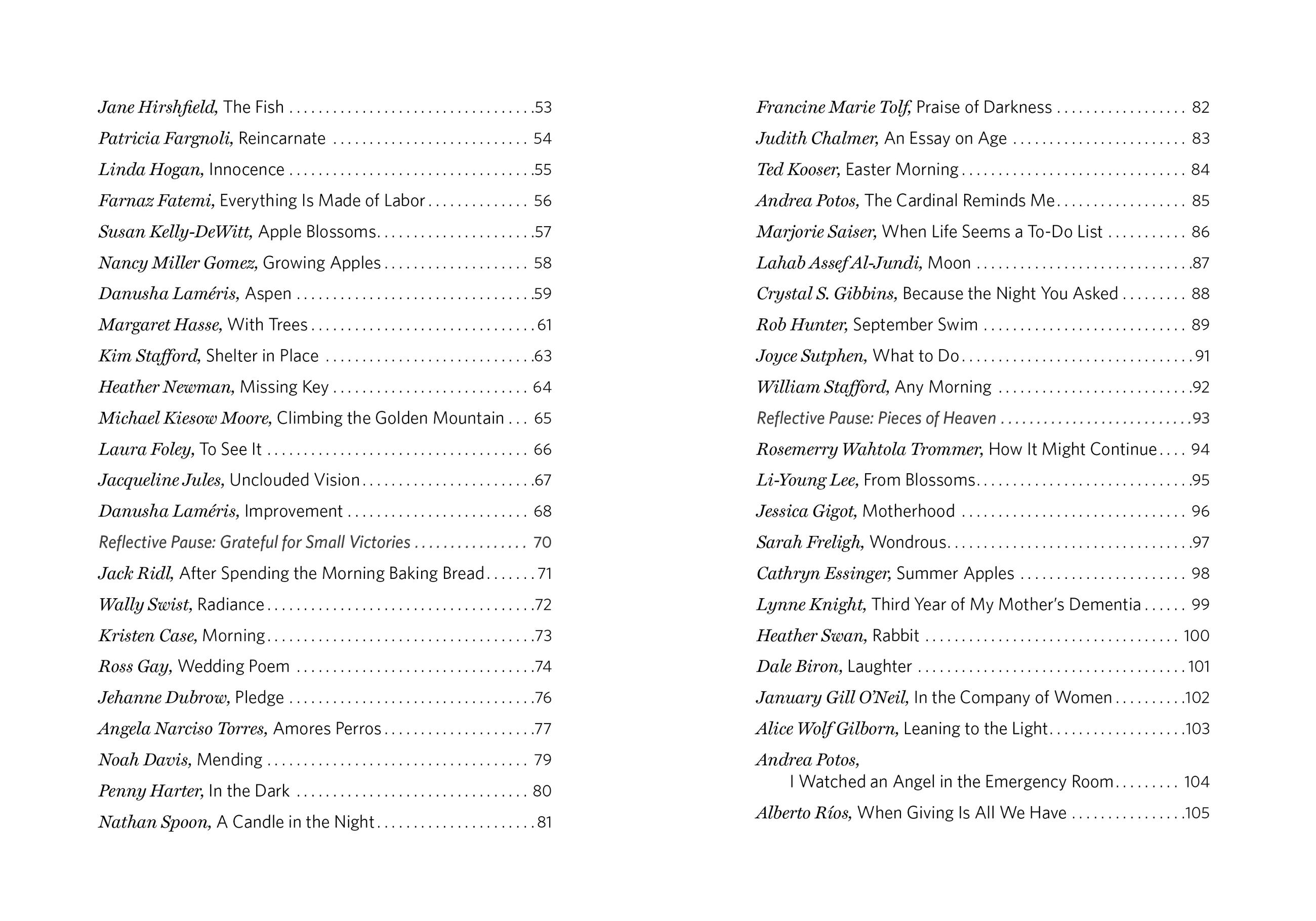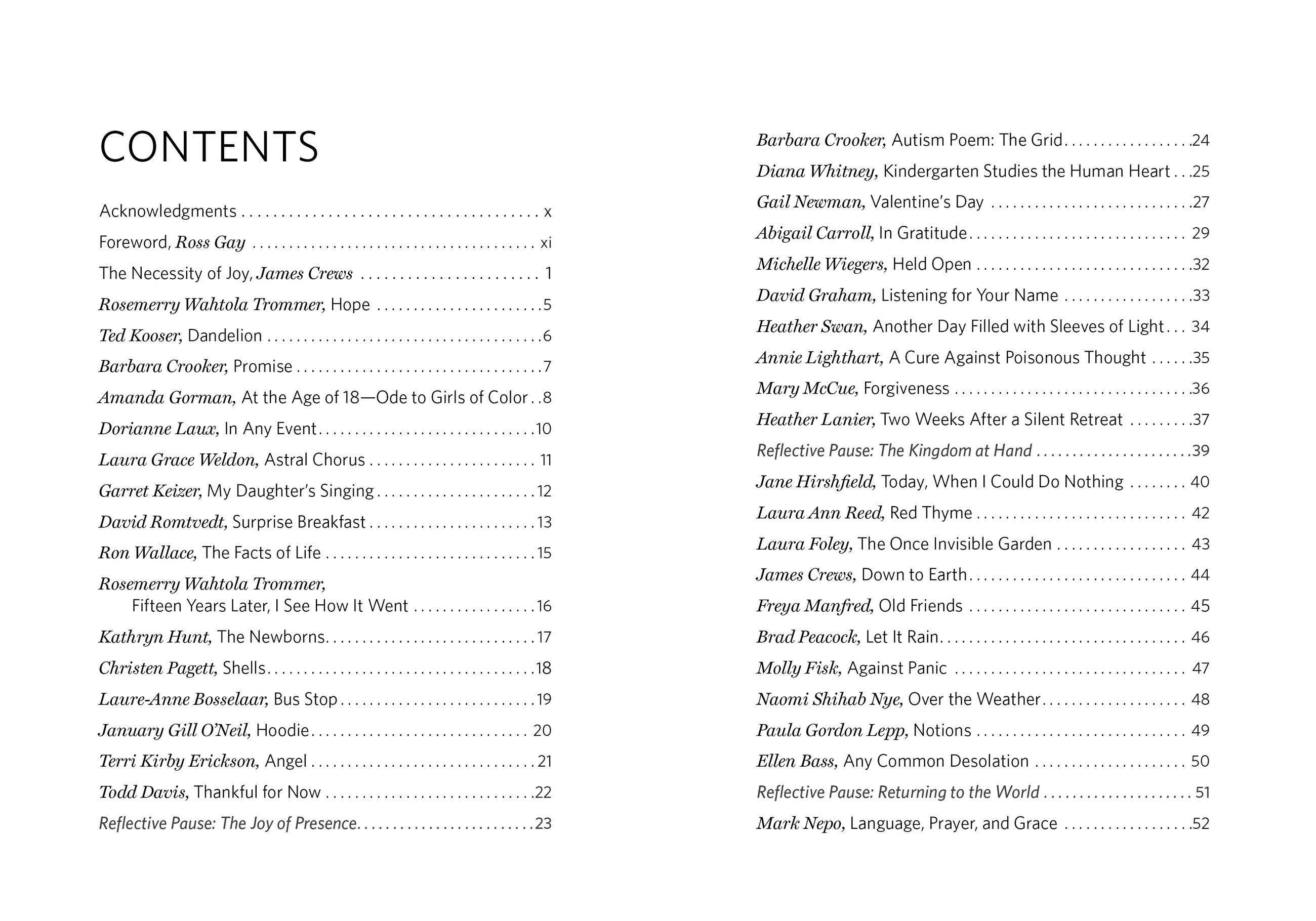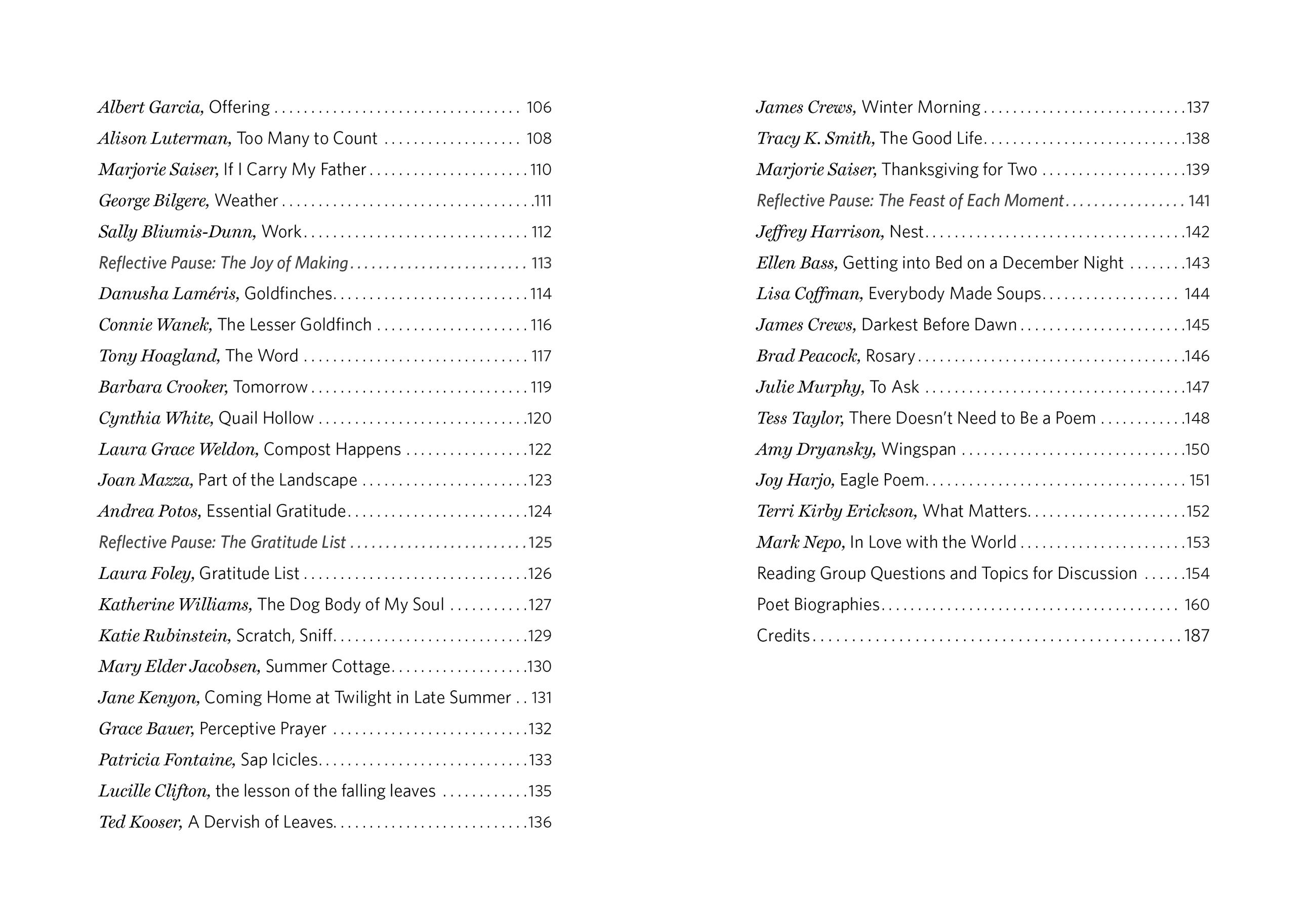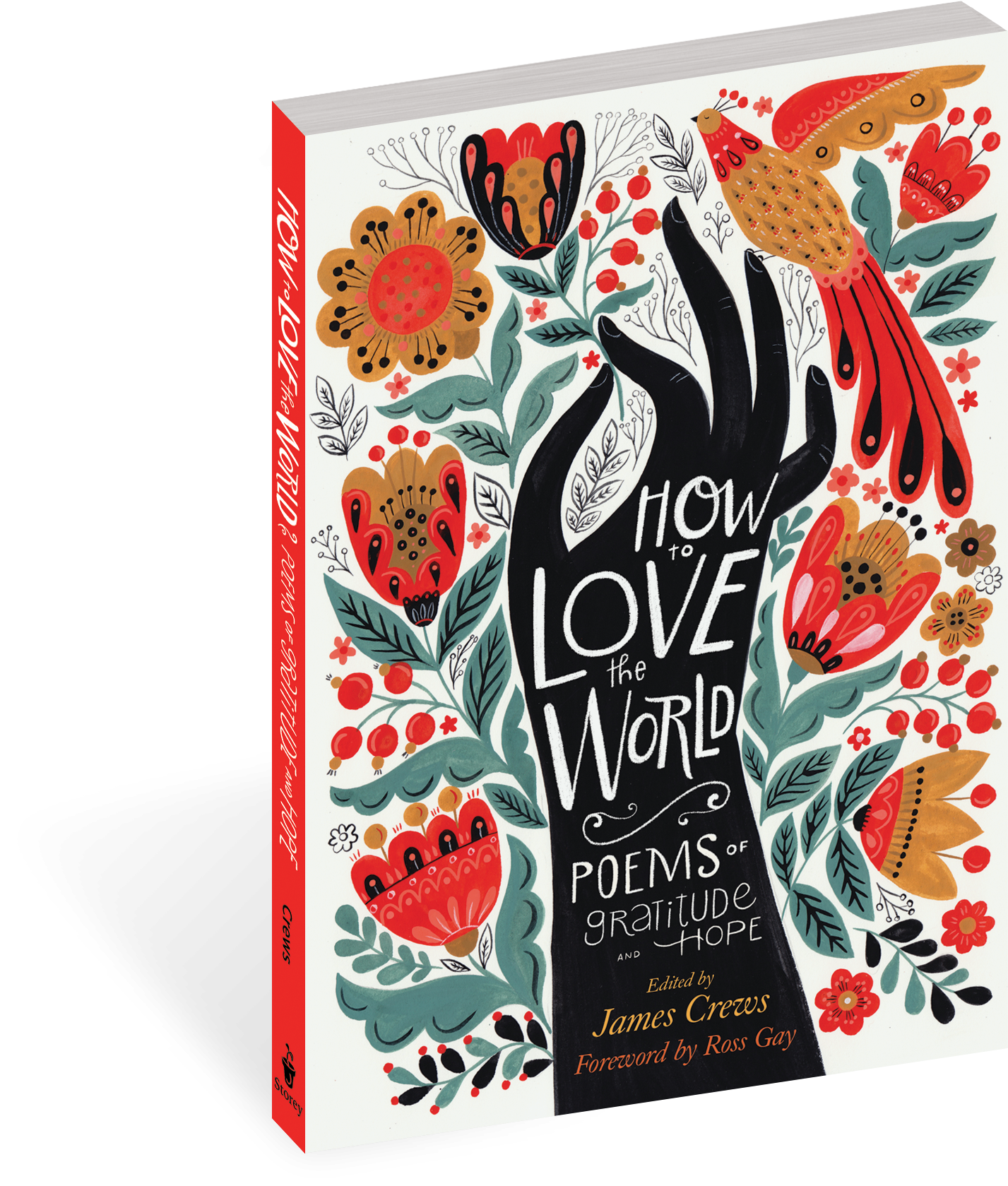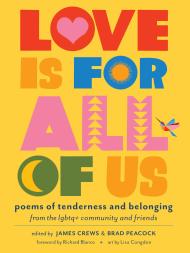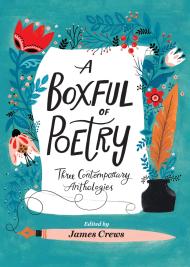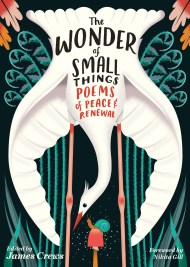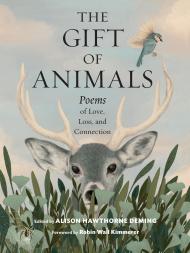By clicking “Accept,” you agree to the use of cookies and similar technologies on your device as set forth in our Cookie Policy and our Privacy Policy. Please note that certain cookies are essential for this website to function properly and do not require user consent to be deployed.
How to Love the World
Poems of Gratitude and Hope
Contributors
By James Crews
Foreword by Ross Gay
Formats and Prices
- On Sale
- Mar 23, 2021
- Page Count
- 208 pages
- Publisher
- Storey
- ISBN-13
- 9781635863864
Price
$14.99Price
$19.99 CADFormat
Format:
- Trade Paperback $14.99 $19.99 CAD
- ebook $9.99 $12.99 CAD
This item is a preorder. Your payment method will be charged immediately, and the product is expected to ship on or around March 23, 2021. This date is subject to change due to shipping delays beyond our control.
Buy from Other Retailers:
More and more, people are turning to poetry as an antidote to divisiveness, negativity, anxiety, and the frenetic pace of life. How to Love the World: Poems of Gratitude and Hope offers readers uplifting, deeply felt, and relatable poems by well-known poets from all walks of life and all parts of the US, including inaugural poet Amanda Gorman, Joy Harjo, Naomi Shihab Nye, Ross Gay, Tracy K. Smith, and others. These poets capture the beauty, pleasure, and connection readers hunger for.
How to Love the World invites readers to use poetry as part of their daily gratitude practice to uncover the simple gifts of abundance and joy to be found everywhere.
Includes a reading group guide that can be used to facilitate discussion in a classroom or in any group setting.
-
"How to Love the World is for every one of us who welcomes or misses the fullness of joy and the wholeness of days." — Naomi Shihab Nye, Young People’s Poet Laureate, Poetry Foundation
"You’ll find lots of poets to love within these pages… this book is exactly what we need in these times – or in any." — Elizabeth Berg, author of I'll Be Seeing You and The Story of Arthur Truluv
"The anthology represents a wide range of poetic voices revealing gratitude as an essential emotion that is simple and complex, all around us but also elusive." — The Boston Globe
"This uplifting collection of poems from masterful poets (Amanda Gorman, Joy Harjo, Naomi Shihab Nye, and more) will not only move you but also remind you that joy can be found during times that feel dark. There are some that are tinted in longing (like “Bus Stop” by Laure-Anne Bosselaar) and some that serve as a beautiful reminder of appreciation (“Thankful For Now” by Todd Davis). The visceral, weighty words from these poets invoke meaning in things that may seem meaningless, pushing us to slow down and reflect." — BuzzFeed
"Readers looking for poetic antidotes to today’s chronic anxiety and frenetic news cycle might enjoy turning to this new and highly readable collection. Spend some time with joy and gratitude through deeply felt work from some of poetry’s most trusted voices including inaugural poet Amanda Gorman, Joy Harjo, Tracy K. Smith, Ellen Bass, Ted Kooser, Naomi Shihab Nye, Jane Hirschfield, and others often featured in the pages of Orion. Interspersed with invitations to write and reflect, this book is designed for discussion and is classroom-ready." — Orion Magazine
Newsletter Signup
By clicking ‘Sign Up,’ I acknowledge that I have read and agree to Hachette Book Group’s Privacy Policy and Terms of Use

